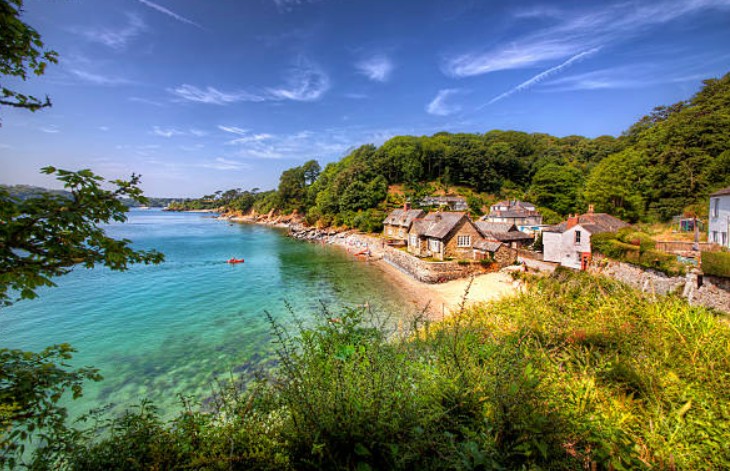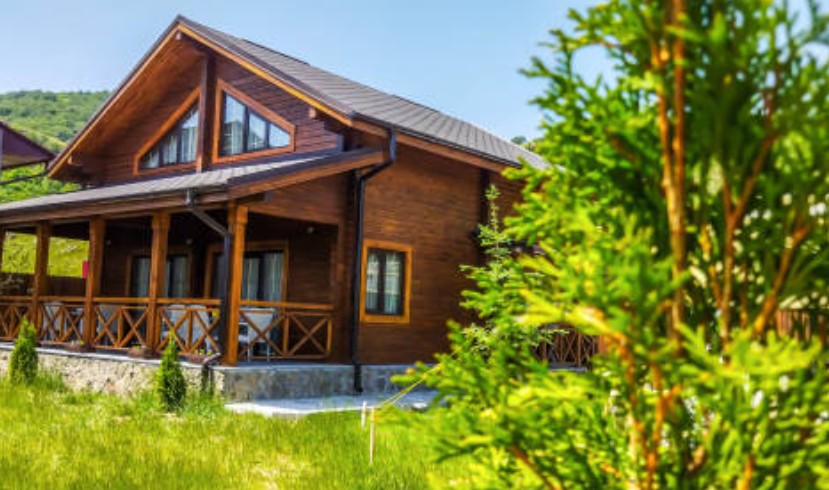I used to wonder if owning a holiday cottage could be more than just a charming getaway — could it generate a meaningful yearly income? After buying my own, running it for over a year, and obsessively tracking everything from occupancy rates to platform fees, I now know the answer is yes — and it might surprise you.
In this blog, I’ll share the realistic income potential of a holiday cottage in the UK, the costs involved, and everything I’ve learned that could help you do the same.
Why Invest in a Holiday Cottage?
The Appeal of Holiday Lets Over Traditional Buy-to-Let
What first caught my attention was the higher earning potential. Compared to long-term buy-to-let properties, furnished holiday lets (FHLs) benefit from:
-
Better tax treatment (including mortgage interest relief)
-
Greater flexibility (you can use the property yourself)
-
Higher per-night rates during peak seasons
My Initial Interest in Holiday Cottage Income
I was originally looking for a second home near the coast. But when I realised I could offset most of my mortgage and even turn a profit, I began seriously researching yearly income on a holiday cottage.
What Makes Holiday Cottages Profitable in the UK?
Staycations are here to stay. Post-pandemic travel habits have shifted, with many Brits preferring local escapes in beautiful countryside and coastal areas. If your cottage has charm, great reviews, and the right location, bookings almost take care of themselves.
How Much Is the Average Yearly Income on a Holiday Cottage in the UK?

Industry Estimates and Nationwide Averages
According to Sykes Holiday Cottages, the average yearly income from a holiday let is £24,000, but the top 10% earn more than £40,000. Airbnb Superhosts in tourist hotspots can reach £50,000+.
These figures are gross, not net. Actual profit depends heavily on running costs.
What I Earned in My First Full Year?
My two-bedroom cottage in North Yorkshire earned £28,700 gross in its first full year. After expenses (cleaning, utilities, booking fees, insurance), I took home around £16,500 net. That’s with roughly 62% occupancy and peak rates of £165/night in summer.
High vs Low Season Income Fluctuations
-
July to September: 80–90% occupancy
-
October to March: 30–50%, with some long gaps
-
April to June: 60–70%, depending on school holidays and Easter
This seasonal variation is normal and manageable with dynamic pricing and off-season marketing.
Key Factors That Affect Holiday Cottage Income
Location, Location, Location
The single biggest factor. A sea-view in Cornwall will likely earn twice what a rural cottage in an overlooked area will.
Property Size and Features
Cottages with:
-
Hot tubs
-
Pet-friendly policies
-
Multiple bedrooms
-
Private gardens or outdoor space
…tend to outperform others. Families and couples are often willing to pay more for comfort and amenities.
Marketing and Booking Platforms
I list on:
-
Airbnb
-
VRBO
-
Booking.com
-
A niche UK cottage platform (costs more, but attracts loyal guests)
Booking platform fees range from 3% to 18%, and some offer better calendar tools than others.
Reviews and Guest Experience
After reaching 15+ five-star reviews, my booking rate increased by 20%. Never underestimate the power of:
-
Fast communication
-
Cleanliness
-
Thoughtful touches like welcome hampers
Table – Example Yearly Income on a Holiday Cottage (By UK Region)
| Region | Average Gross Income | Est. Occupancy Rate | Peak Nightly Rate |
|---|---|---|---|
| Cornwall | £30,000 – £55,000 | 70–85% | £180 – £250 |
| Devon | £28,000 – £50,000 | 65–80% | £160 – £230 |
| Lake District | £22,000 – £40,000 | 60–75% | £150 – £220 |
| North Yorkshire | £20,000 – £38,000 | 55–70% | £130 – £190 |
| Cotswolds | £24,000 – £42,000 | 60–70% | £160 – £240 |
| Scottish Highlands | £18,000 – £35,000 | 50–65% | £140 – £200 |
| Snowdonia / North Wales | £16,000 – £32,000 | 50–65% | £120 – £180 |
| Peak District | £19,000 – £36,000 | 55–70% | £140 – £210 |
| Norfolk / Suffolk Coast | £20,000 – £38,000 | 60–75% | £150 – £200 |
| Isle of Wight | £22,000 – £40,000 | 60–70% | £140 – £220 |
| Brighton & South Downs | £25,000 – £45,000 | 65–75% | £160 – £250 |
| Yorkshire Dales | £18,000 – £33,000 | 55–65% | £130 – £190 |
| Kent & East Sussex | £20,000 – £37,000 | 60–70% | £140 – £210 |
| Dorset | £24,000 – £42,000 | 65–75% | £160 – £230 |
These are gross income estimates. Net income can range from 50–65% after operating costs.
What Are the Costs of Running a Holiday Cottage?
Mortgage and Insurance

If you’ve got a mortgage, a standard BTL won’t do. You’ll need a holiday let mortgage, which may have slightly higher rates. Insurance is also different — you’ll need:
-
Buildings + contents
-
Public liability
-
Loss of income cover
Utilities, Maintenance, and Cleaning
My typical monthly costs:
-
Gas/electric: £100–£150
-
Broadband: £30
-
Water/sewer: £40
-
Weekly clean: £35–£50
-
Annual deep clean & maintenance: £300–£500
Booking Fees and Marketing Costs
Airbnb charges ~3–15% depending on your setup. Some agencies charge 15–25% commission, which can eat into profits but save you time.
Furnishing and Upkeep
Initial furnishing cost me £8,500 (mid-range quality), but annual upkeep — replacing towels, bedding, repainting — is £500–£800.
How to Maximise Your Holiday Cottage Income?
Optimising for Year-Round Bookings
-
Offer short stays in winter
-
Use email campaigns to target returning guests
-
Add seasonal packages like Christmas or Valentine’s deals
Upsells and Extra Income Ideas
-
Pet fees (£25 per stay)
-
Firewood (£10/bundle)
-
Luxury hampers (£30–£50)
-
Late check-out (£20–£40)
Using Dynamic Pricing Tools
I use a service that syncs with my calendar and adjusts prices based on:
-
Demand
-
Events nearby
-
Competitor rates
It helped me increase my average nightly rate by 12% last year.
Automating Guest Communications and Reviews
Automated messages (check-in, check-out, review request) save me time and improve ratings. Tools like Hospitable or Guesty are great if you list on multiple platforms.
Recap – My Take on Earning Yearly Income From a Holiday Cottage
-
Gross income is important, but focus on net profit
-
The best returns come from great guest experiences
-
You don’t need 100% occupancy to make it work — just smart pricing
-
Automation and systems make this scalable, not stressful
Final Thoughts – Should You Buy a Holiday Cottage for Income?
Looking back, buying my holiday cottage was one of the best financial decisions I’ve made. It hasn’t just brought in steady income — it’s also been a joy to manage (most of the time) and gave me the chance to learn about property and hospitality.
If you’re considering it, just know: success in this space doesn’t happen by chance. But if you put in the effort, a holiday cottage can earn a healthy yearly income — and become a rewarding long-term investment.
FAQs About Yearly Income on a Holiday Cottage
Is It Profitable After All Expenses?
Yes — if managed well. Expect net profits between £12,000 and £25,000+, depending on location and occupancy.
How Much Do I Need to Invest Upfront?
At least £20,000–£40,000 for deposit, furnishing, and setup, depending on the property.
Can I Manage It Myself or Should I Hire an Agency?
I self-manage with part-time cleaners. If you’re far from the property, an agency can handle everything for a cut of your income.
Do I Need to Pay Tax on Holiday Let Income?
Yes — but FHLs have favourable tax rules, including capital allowances and full mortgage interest relief.
What Happens During Low Booking Months?
I offer discounted mid-week stays or long weekends, and target remote workers and couples.

Leave a Reply